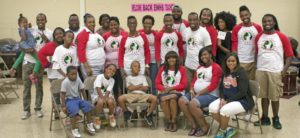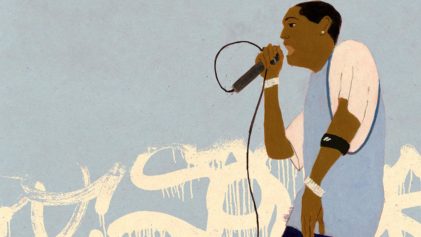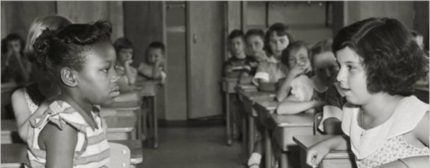By Marlee Archer
With the recent controversy surrounding police brutality in the U.S., rioting and climactic protesting have shed new light on the dim corners of inner-city America, often hidden in the marginalized shadows of economic disparity and a destructive narrative. Many have proposed theories of how to break the cycle of poverty, joblessness and other issues that underline the exasperation of African-American inner-city residents.
The AKOBEN Foundation, a nonprofit organization in Baltimore, believes the key to unlocking the doors of progress is early childhood literacy and a grassroots-level work ethic for change.
“One might ask what does early childhood literacy have to do with the current flight or the plight of African-Americans, but it has everything to do with it. Literacy is at the foundation of success,” says Ryan Turner, founding director of the AKOBEN Foundation. “The issue right now for African-Americans is the want and the desire for equality.”
Studies have indicated that poverty and joblessness in urban cities like Baltimore are directly linked to illiteracy.
On a national scale, two-thirds of students who cannot read proficiently by the end of fourth grade will end up in jail or on welfare, according to Begin to Read’s website. Statistics also indicate that 85 percent of young adults who’ve faced trial in the juvenile court system are functionally illiterate.
“A lot of the folks that were rioting here in Baltimore, they find it very difficult to find jobs,” Turner said. “And I don’t think that’s the case that there are no jobs available. But there is just an oversaturation of entry-level positions that are already occupied, and a lot of positions on a higher level they are unable to qualify for.”
In 2009, the U.S. Census Bureau found that Baltimore alone made up 26 percent of the Maryland population under the poverty line, and that Baltimore residents accounted for 27 percent of adults in Maryland who were below the poverty line and without a high school diploma.
Focusing on literacy is reaching for the heart of the matter, investing in real change that can have exponential benefits to the economic future of a community, AKOBEN believes.
By encouraging children to become avid readers by the third grade — a critical time in educational development — to graduate high school on time and acquire competitive skill sets, Turner believes young adults in Baltimore “won’t have to settle for minimum wage, entry-level positions. They will have the skills to compete with the best of them in higher job markets.”
The AKOBEN Foundation is one of the few nonprofit, grassroots
According to the President’s Committee on the Arts and Humanities 2011 report, “students with high involvement in the arts, including minority and low-income students, performed better in school and stayed in school longer than students with low involvement, the relative advantage increasing over the school years.”
The committee also found that “low-income students involved in drama showed greater reading proficiency and more positive self-concept compared to those with little or no involvement.”
This is why the AKOBEN Foundation believes that teaching literacy and effective communication skills through performing arts can equip the youth of future generations with the information and articulation needed to assert themselves as capable, knowledgeable citizens of their community.
“Our performing arts initiative, ‘Reading, Rhythm and the Arts,’ teaches children to express themselves in a way that is respectful, that is peaceful, but also honors their individuality,” Turner said.
Turner also feels improved literacy could have a domino effect on inner-city youth’s interactions with law enforcement.
“We project that they will have the communication skills and literacy necessary to address officers, by understanding their rights, knowing what they can and can’t do and having the verbiage to function through the kind of circumstances they may encounter in areas like Baltimore,” he said.
Since its inception in 2011, AKOBEN has reached over a thousand children, parents, homeless individuals and other Baltimoreans — but the foundation started from humble beginnings, according to AKOBEN board of directors member James Durrah.
“The organization was first operated out of a living room,” said Durrah. “It started with the mission of a young African-American man who wanted to change the narrative of his city. And since then, Turner has led AKOBEN to become a fully funded, 501(c)(3) incorporated nonprofit organization with a physical headquarters and a functioning board of directors.”
That humility of the foundation’s origin has stayed with Turner even as the organization has flourished.
“It’s really not that difficult — it’s really just about passion, commitment and consistency. Not politicking and hobnobbing, but fidelity to the mission,” Turner said. “There are a lot of great organizations that are helping great people; I think that if all of us come together, with this same mindset, we would make more change than we are making now … unity is the key.”
It’s a success story of reaching back from whence we came, to take the future of Black youth into our own hands — a model that can be duplicated across the country by a generation of young Black leaders and entrepreneurs, ready for and capable of sparking change in their local communities and beyond.
ABC and other news outlets have featured the AKOBEN Foundation in both online and print media. To find out more about the AKOBEN Foundation and ways to get involved, visit the organization’s website: http://akobenfoundation.org/donate/



